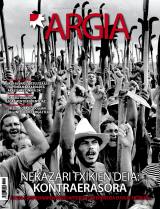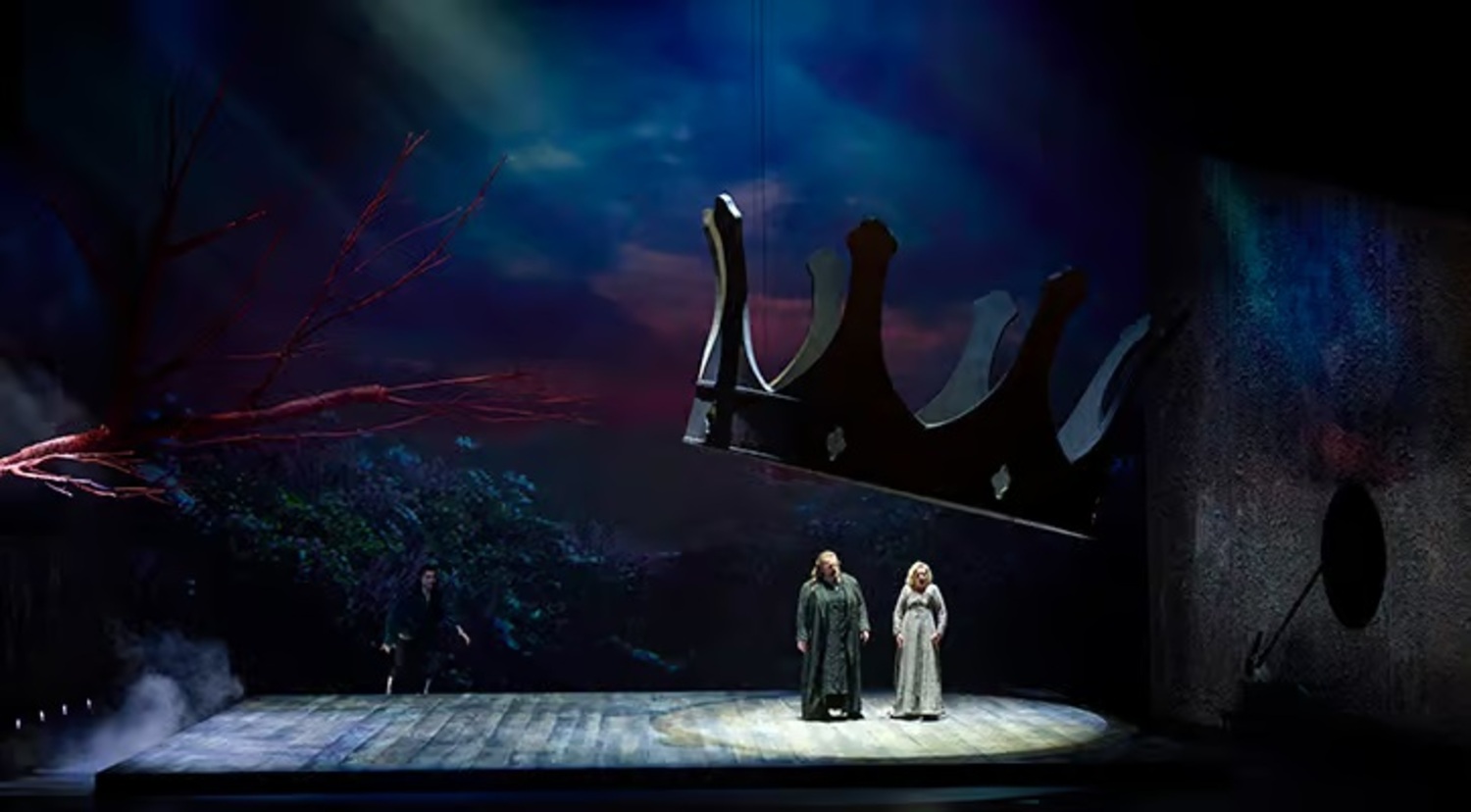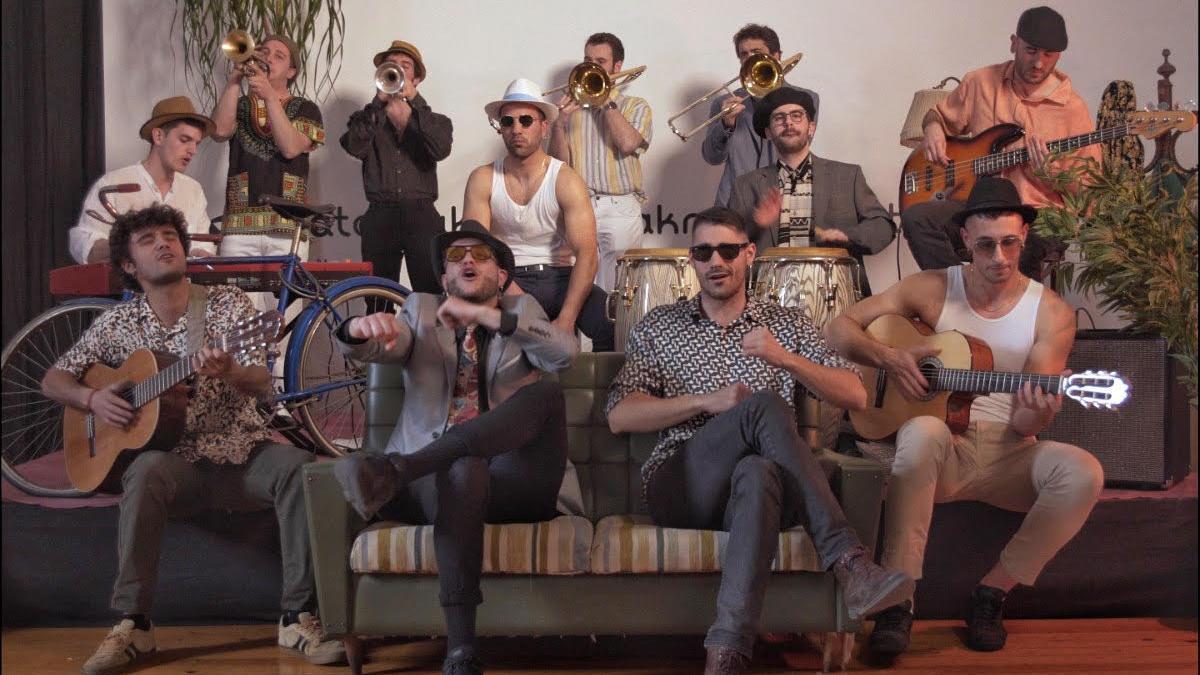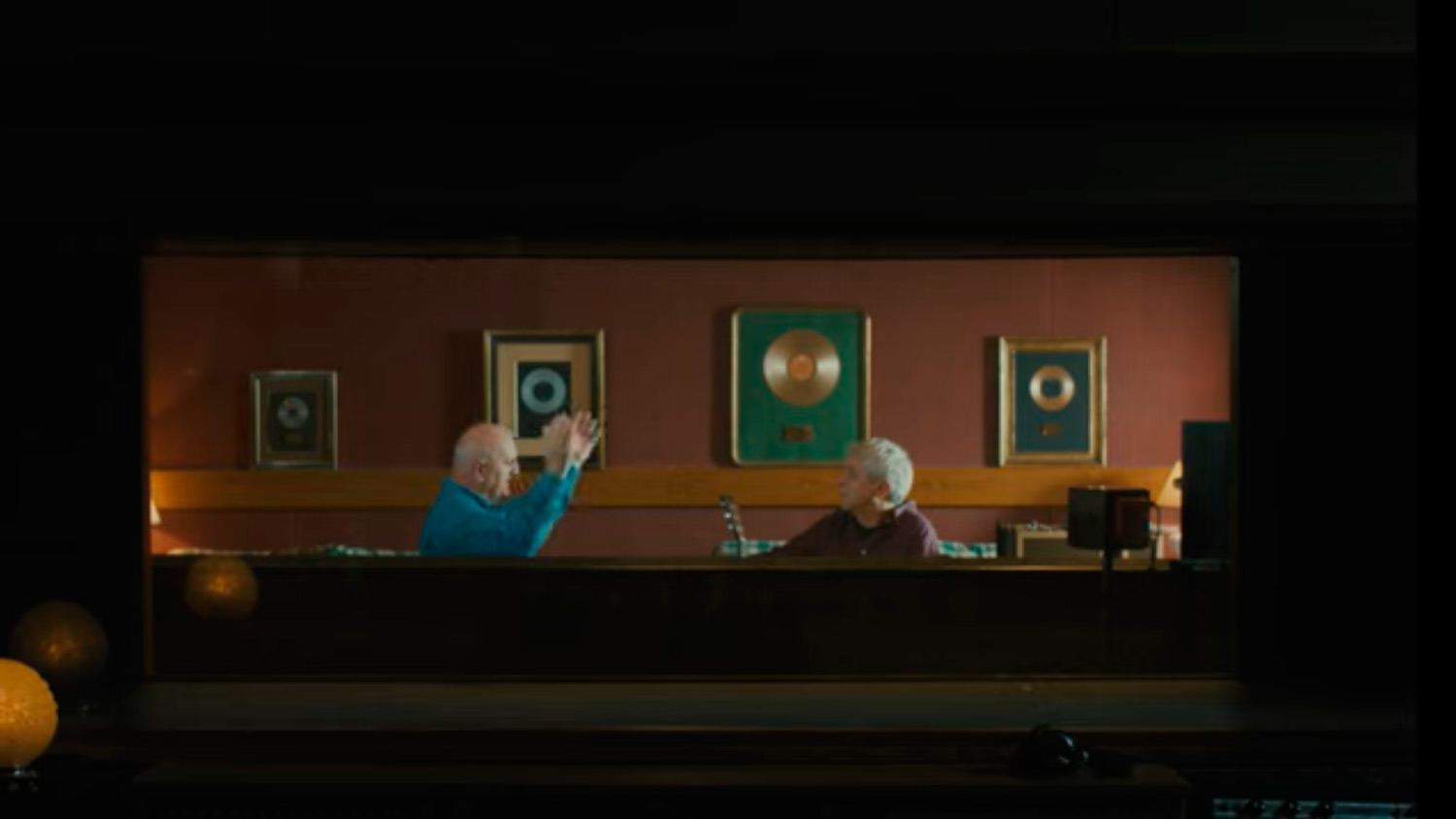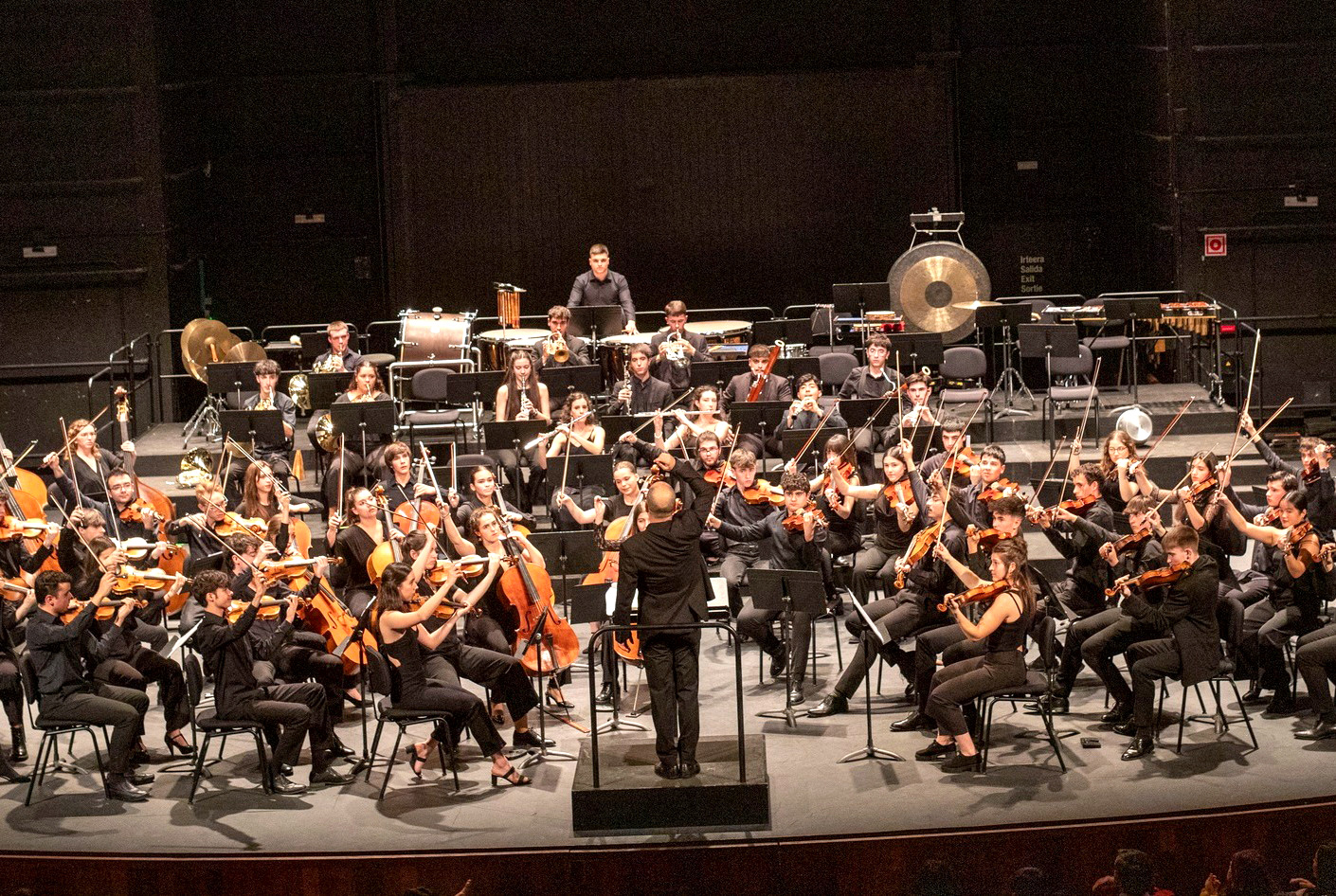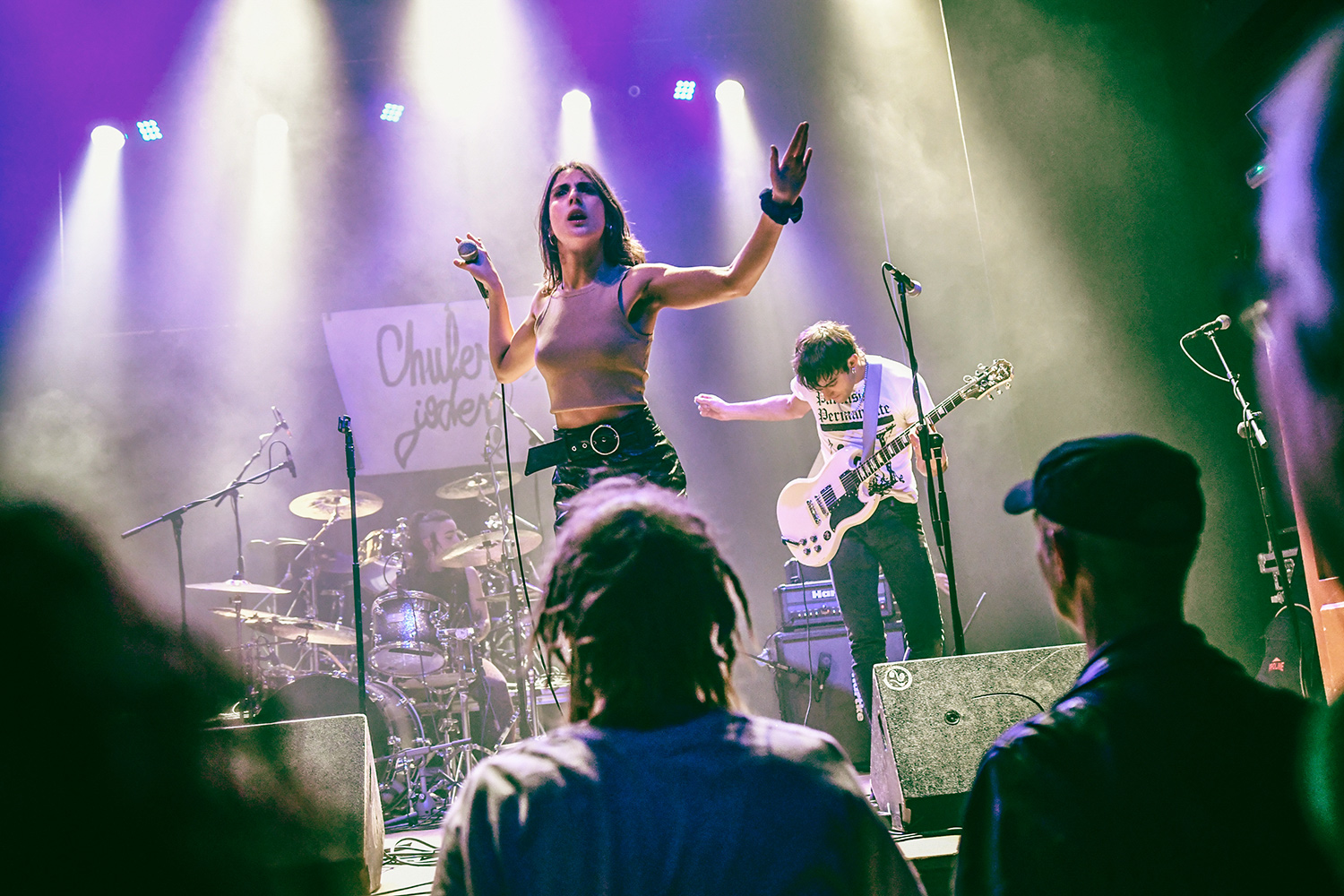"Now, in most feminist festivals, reggaeton is danced."
- The Argentinian Romina Bernardo is one of those who has taught us to carry on politically: He invented the concept of “Lesbian reggaeton” and creates songs of this musical genre under the name of Chocolate Remix. He wants to bring to the nightclub what has been silenced for years, and celebrate it: opportunity, life and relationships of lesbians. We met him in Bermeo, before offering a concert at the cantina of Talako.
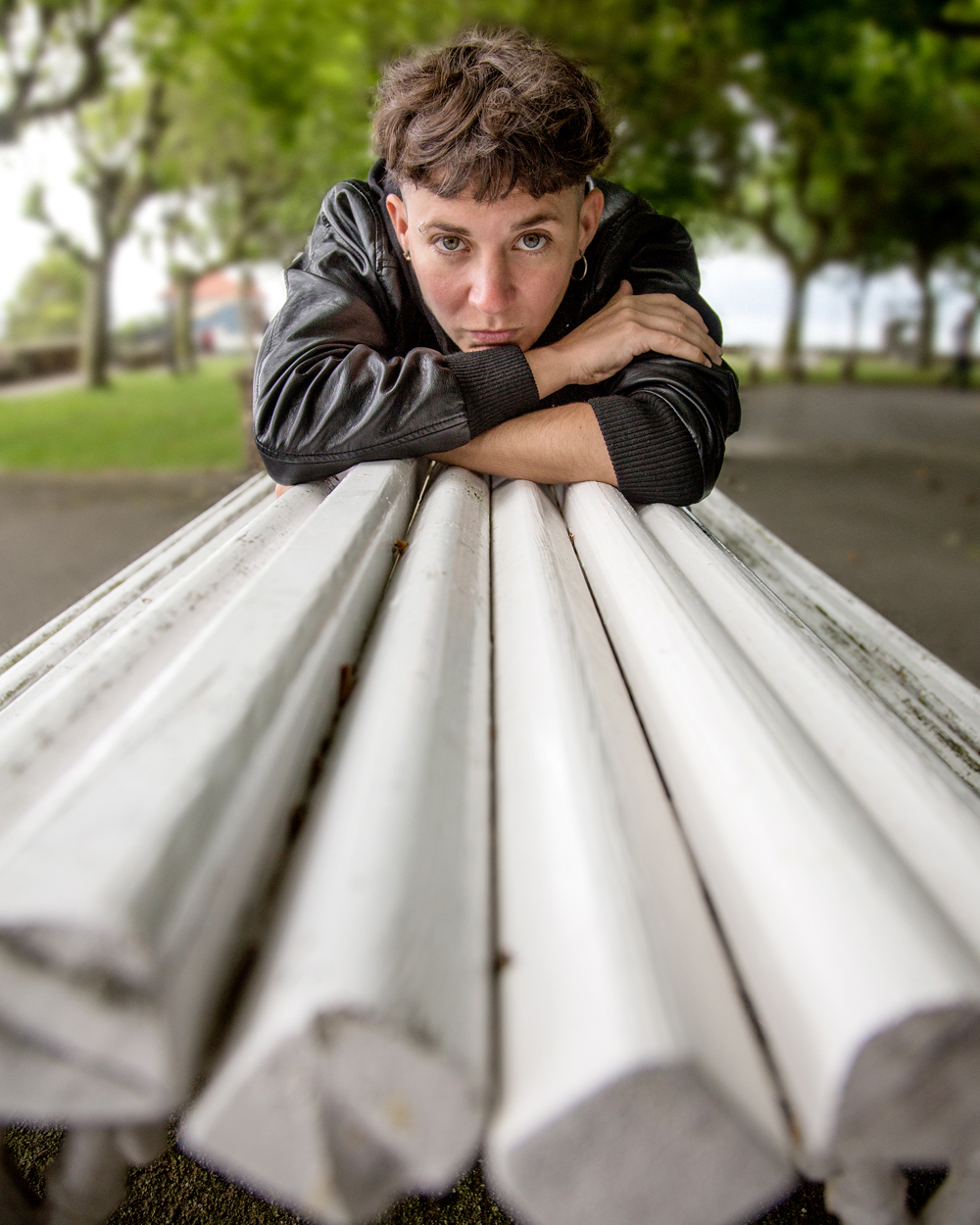
He said that in 2013 he had started this project as a joke. Now, however, you've taken a record, and you're already giving concerts for the second time in several countries in Europe. How have you lived these four years?
It's been amazing, because I didn't expect that to happen, but the truth is that everything has come quite naturally. On the other hand, and even though I was originally a kind of joke, I offered my first concert a month after the home-recorded song spread over the Internet, so it became pretty quickly more than just a joke. I myself started to take it seriously two years ago.
Why?
At first, it was also a joke from a musical point of view: I was playing and seeing what was coming out of there. It took me a while to discover a stronger identity. Conceptually, the project was very defined from the very beginning, but not from the musical point of view. I've always played the guitar: It was the first time I was producing and singing! I walked through a sort of search, and at one point, I got several things, some criteria, that on a personal level were necessary for me to work this as a musical project: a sound, a way of singing ...
In your opinion, why has this “lesbian reggaeton” achieved such a success?
I believe that, in part, reggaeton has merit. This genre is considered simplicity and musically insufficient, but it is clear that reggaeton has a certain flow, yours, and it has strength despite many other factors: people start dancing, pay attention…
“Above the speeches attributed to reggaeton, in my opinion, in some spaces there was a lot of shame to dance”
On the other hand, there was a certain almost moral limit that some people could not enjoy this genre for various reasons. So by transforming those limits and doing more powerful things, people have become hooked.
Year 2013, city of Buenos Aires. What was the relationship between the LGTB community and reggaeton?
In normal LGTB spaces, that is, fewer militants or politicized, a lot of reggaeton was set. In these spaces, other academic discourses lacked such strength and would dance and enjoy more easily. In more militant spaces, I remember that the first times I did concerts, people wanted to dance, but they didn't give permission.
What would be the cause of such contempt?
In these middle-class spaces, the middle class of Buenos Aires and that of Europe are similar, you understand the body, dance and many other things differently. In my view, above all, over all those other speeches that can be attributed to reggaeton, there was a lot of shame. I saw them there wanting to move them all around, but they didn't think it was possible, even in a million years, to get on four legs and start dancing. I think this has more to do with other issues: morality, what is considered appropriate, what is cool and what is not…
The situation has changed, right?
“This style is no less than rock, it’s about knowing to what extent each musician works his own thing.”
Yes, in fact, reggaeton has become such an icon within feminism through different discourses. Among other things, what June Fernández said was very powerful. At first it was despised, but after all this movement was taken with enthusiasm and now in most feminist festivities the reggaeton is danced. Moreover, in radical feminist festivities reggaeton is one of the most dancing musical styles.
Have you ever played on the regular reggaeton scene?
I've never touched in spaces that belong to the reggaeton to the weather. It's paradoxical. The truth is, I would love to work in such a place, but I think what I do would still raise powders in that place, so we'll see. The reggaeton scene, in 2013, was and continues to be a unique world, more linked to mainstream logic.

I'd like to talk about the songs from the album that you just published. Among them is the first song you recorded in your house as a joke and that you spread over the internet: Let's take charge. That seemed to me to be the most reggaetone song on the record.
I completely agree. With this song I wanted to recall the reggaeton that marked me the most at the time, the school of the 2000s. Part of it is a tribute, and I wanted to honor Daddy Yankee. You can say a lot about her work, but if it wasn't for Daddy Yankee and Gasoline, I wouldn't be here.
One of the things criticized for this style is that music is scarce. Your album is very varied. What has changed since you created that first song?
I hear a lot of reggaeton, and when I look at the things that producers do, I see that they're looking and looking. When I started, it seemed to me a difficult and complex thing. In addition, the possibilities open to you by this digital production path never run out. You can do a lot of research in all musical styles, but in that sense, reggaeton is no less than rock, but it's about seeing how much each musician wants to grow theirs. I wanted to investigate the sounds myself, invent other rhythms ... I didn't want to find a reggaeton formula and produce string songs.
How do you create songs?
Normally, I start on a fairly simple basis, and through it, I create a climate, an environment, a sensations... It is very important to look for what I call climate. Then, from there, I began to wonder where the letter would sound.
This is another error attributed to reggaeton, the dissemination of sexist content. How do you work the letters yourself?
“When I spoke of female sex I saw a celestial or pornographic image; my intention is to show it as it is”
For me, the lyrics of songs are very important, both in terms of sound and content. I attach particular importance to the content. Now, reggaeton uses a lot of rhyme, and I use it a lot. It sets a framework that limits the words you can use among the millions of words in the world. Those limits help you create: you start thinking about how you will mix this and this, and there you will find magical things.
In some songs, lesbian sexual intercourse appears very explicitly. One of the goals of your music was to make lesbians visible, and I think you've brought that sex field especially to the front line.
That was precisely one of the pillars of the project. At that time, I saw very few things about the female sex on television. In addition, every time we talked about the female sex, we talked about something as celestial as if two angels had been found there... I had no connection with the flesh. Then there was another imaginary, habitual in porn, dedicated to the look of heterogeneous men. It seemed to me that neither one nor the other reflected reality. So, my intention was to show sex among women as such.
And I wanted to do some propaganda! (Laughter) After all, in this world, you're considered heterosexual as long as you're born, and you have to sell other sexualities so that people know that it exists and that it's OK, that it's not a problem and that you're going to enjoy.

The song Bien bow has a very special origin, doesn't it?
In almost every reggaeton song, a rhythm called denbow is used. Originally it was a dance style rhythm, but its name and fame are due to a song by Jamaican musician Shabba Ranks. The point is that that song is very homophobic. The English word bow means folding, and in this case, it refers to homosexual relations. The song said: “The man wearing the skirt is bow, the woman looking at another woman is bow, raise her hand if you are not bow,” etc. Then, Nando Bum and El General, the reggaeton pioneers, made versions in Spanish. Nando Bumena was very explicit, El General a little more vague, but both contained the original message and achieved great success.
And you've given her a big spin…
Yes, it was about making a remake of the song, as an answer; I took the insult and I said: yes, I am bow, I am very bow, and I am proud.
In that same song, you say: “We are very bothersome, homosexual, marico, bolleras, bisexual, intersex and transsexuals; we are all but neoliberal.”
This phrase emerged in a special situation. We were on the doorstep of the last elections, now we have the far-right Macri in government, and we did a great campaign so that this didn't happen. We had organized a great event, but it was suspended due to the rain, so we gathered all the singers in a plaza, and we participated in the free style. I represented feminism and diversity, other singers had other demands, but we all agreed: we didn't want the right to win the elections in Argentina. The idea emerged in that particular context, but it can be transferred to any situation in which the right is threatened.
You say that we are very varied in the song Bien bow, and that variety you have made flesh in the video of As I Like Me.
I created As I like with the intention of celebrating lesbianism and its diversity: we are here, we are this, and everyone knows it. In short, historically, the opposite has been done: silence our collective.
On the other hand, recording the video was a great thing. There's a group, El Tortazo, and there we are all lesbians in Buenos Aires and I would say some other cities as well. We shared erotic photos and things like that in that group, and right there I said we wanted to record a video clip and see if anyone wanted to come. It was great, because I was told right away that no choice was made, so the result is authentic, a reflection of the real plurality that exists in our collective.
Opera 'Tristan und Isolde'
Bilbao Symphony Orchestra. Directed by: Assisted by Erik Nielsen.
The Bilbao Opera Choir. Directed by: Assisted by Boris Dujin.
The stage director: To the Allex Eagle.
The soloists: I'm talking about R. Assisted by Nicholls, G. By Hughes Jones, M. The... [+]
Party and recreation. Oral History of Rock Radical Vasco
Javier 'Jerry' Corral
Books, 2025
------------------------------------------------
Javier Corral ‘Jerry’ was a student of the first Journalism Promotion of the UPV, along with many other well-known names who have... [+]
All
WHEN: January 18th.
IN WHICH: Jimmy Jazz of Vitoria-Gasteiz.
----------------------------------------------
I have a question in my mind lately: how much do things change in 30 years? Yes, reader, you guessed it: I’ve just turned three decades old. It will be a... [+]
Itoiz, udako sesioak filma estreinatu dute zinema aretoetan. Juan Carlos Perez taldekidearen hitz eta doinuak biltzen ditu Larraitz Zuazo, Zuri Goikoetxea eta Ainhoa Andrakaren filmak. Haiekin mintzatu gara Metropoli Foralean.
Sawdust
Olaia Inziarte
Panda, 2024
-------------------------------------------
Fourteen songs written during the Depression. Olaia Inziarte presented it in the first late night in Basque that can’t be mentioned now. The bru-ta-la piece Sawdust opens the disc. A jazz... [+]
Since Benito Lertxundi, who told us that he will leave the scenes for ever, we have been there for several weeks, and since then many of us have felt orphans in one way or another, with a sense of loss or abandonment, sad. To Iruindarro, at least, we will remain forever honored... [+]
Nafarroa Arenan Mitoaroa ikusten izandako lagun batek “telurikotzat” jo zuen entzun-ikusi-sentitutakoa. Niri ere hala iruditu zitzaidan telebista medio etxetik hauteman nuena.
Pentsa daiteke Mitoaroak piztutako grinak eta atxikimenduak proiektuaren ikusgarritasuna... [+]
Basque Country Herriko Gazte Orkestra. Winter Meeting
Director: Iker Sánchez.
Narrator: Kepa Errasti.
Programme: Works by Britt and Beethoven.
Place: Victoria Eugenia Theatre, Donostia.
Day: 2 January.
-----------------------------------------------
After 27 years, we... [+]
Chulería, fuck!
WHEN: 5 January.
WHERE: At the Kafe Antzokia in Bilbao.
----------------------------------------------------
As I filled the room, looking down behind the railing above the theater, I've been playing to see if I find someone younger than me before the... [+]
Beyoncé at the break of an American football game in Houston, Texas. The American singer has come to the center of the stadium in a cowboy suit that she's had access to. The hat covers the nice, the legs the boots long to the knees. The scarce white suit shows her thighs and... [+]
The New Year’s Morning is the title of a roundness created by Joxe Ansorena, brother of our grandfather Isidro, for the Txistularis to hit the streets during the New Year’s Morning. In the air of that melody, we were picking up the wrecks of the night, like the garbage... [+]









